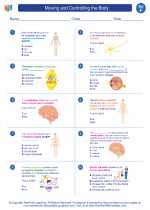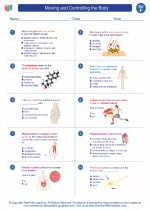Elimination in Science
Elimination in science refers to the process by which waste products and toxins are removed from the body. This is a crucial function for maintaining health and homeostasis. There are several systems in the body that are involved in elimination, including the urinary system, digestive system, and respiratory system.
Urinary System
The urinary system is responsible for eliminating waste products and excess substances from the body through the formation and excretion of urine. The main structures involved in the urinary system are the kidneys, ureters, bladder, and urethra. The kidneys filter the blood to remove waste products and excess substances, which are then excreted as urine.
Digestive System
The digestive system plays a key role in the elimination of solid waste from the body. After the nutrients and water from food have been absorbed in the small intestine, the remaining waste moves into the large intestine, where water is reabsorbed and the waste is formed into feces. The feces are then eliminated from the body through the rectum and anus.
Respiratory System
The respiratory system is involved in the elimination of carbon dioxide, a waste product of cellular respiration. When we breathe in oxygen, our cells use it to produce energy, and carbon dioxide is produced as a byproduct. The respiratory system removes this carbon dioxide from the body when we exhale.
Study Guide
- Describe the role of the urinary system in elimination.
- Explain the process of waste elimination in the digestive system.
- How does the respiratory system contribute to waste elimination?
- Compare and contrast the mechanisms of waste elimination in the urinary, digestive, and respiratory systems.
- Discuss the importance of proper waste elimination for maintaining homeostasis in the body.
◂Science Worksheets and Study Guides Sixth Grade. Moving and Controlling the Body

 Worksheet/Answer key
Worksheet/Answer key
 Worksheet/Answer key
Worksheet/Answer key
 Vocabulary/Answer key
Vocabulary/Answer key
 Vocabulary/Answer key
Vocabulary/Answer key
 Vocabulary/Answer key
Vocabulary/Answer key
